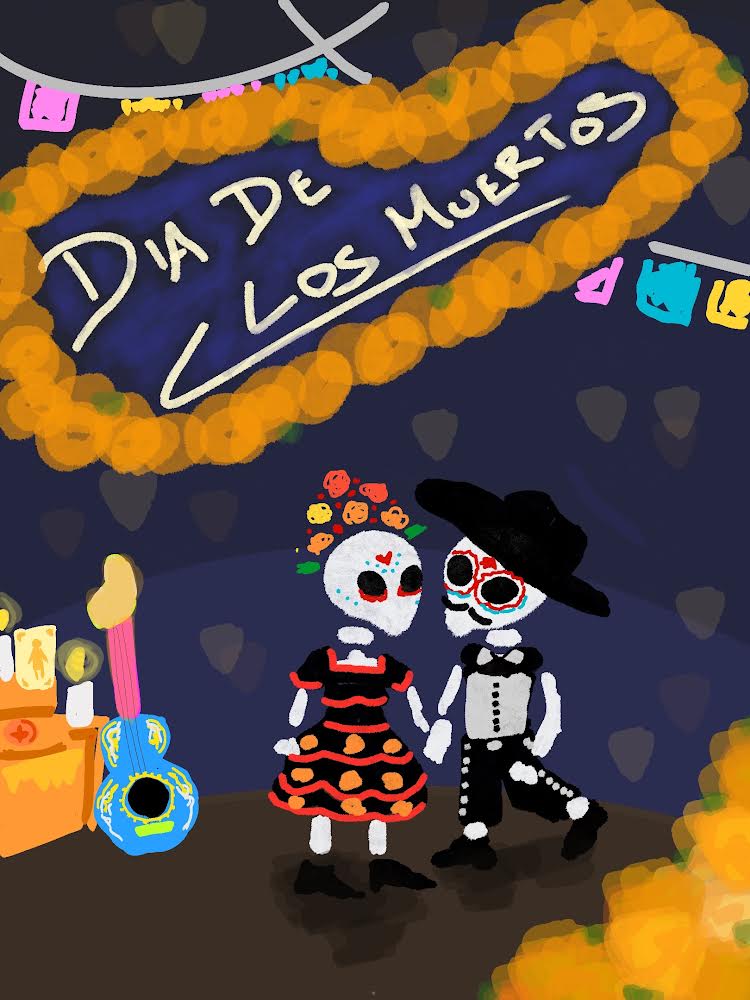By Alizah Salazar, Staff Reporter
Dia de Los Muertos is a cornerstone of CSUDH campus culture, bringing together students, faculty, staff and the Carson community. The annual event on campus offers a space for reflection and a celebration of life – a must-attend experience for anyone interested in learning more about this Toro tradition.
The Dia de Los Muertos holiday, or the Day of the Dead, originated in Mexico. Families honor their ancestors by decorating altars (ofrendas), with photos, candles, marigold flowers (cempasúchil) and their relatives’ favorite foods. At Dominguez Hills, the Latinx Cultural Resource Center (La Casita) is often at the forefront of Dia de Los Muertos events on campus. La Casita combines traditional and contemporary elements to create a unique experience, and this year’s event on November 7 is shaping up to be memorable for Toros.
The holiday occupies a special place in the hearts of many Toros, like sociology student Sierra Ortega-Moore, who has performed at past Dia de Los Muertos events.
“My favorite thing from the event is the community,” Ortega-Moore told The Bulletin. “I loved seeing all the different ethnicities there.”
Ortega-Moore said she regards Dia de Los Muertos as more than a cultural tradition; it’s an opportunity for the different communities at CSUDH to honor the past and celebrate the present together.
“La Casita really gave all their love right – to all different flavors of the world – and having other friends around me that also identify as myself,” Ortega-Moore said. “It felt like home and very connected to my ancestors.”
La Casita program coordinator Koatzin Kamil is one of the organizers of this year’s commemoration. Kamil told The Bulletin that the Dia de los Muertos celebration will not only incorporate individual remembrance, but also focus on broader issues related to historical trauma and community healing.
“This year’s intention is to provide a space to think about collective loss and genocide,” Kamil said.
Getting Dia de Los Muertos off the ground at CSUDH every year requires considerable effort and collaboration. Kamil lauded Loker Student Union and Associated Students, Inc. for helping La Casita plan the event. In the weeks leading up Dia de Los Muertos, La Casita will host seminars to explain the holiday’s cultural significance, including a workshop on how to make an altar. The goal, according to Kamil, is to foster a broader appreciation for the holiday.
“We want to move away from this idea that it is just a Mexican-inspired honoring right,” Kamil said. [The holiday] is seen across Latin America – not that there’s anything wrong with Mexico holding the lead because it occupies a larger space in Latin America – but, you know, other folks also honor it, and I think it is important to highlight them, too.”
Correction — Oct. 10, 2024: The printed version of this story reported that La Casita’s event would feature “a costumed procession, followed by performances from local artists and community groups, including folklórico dancers and mariachi bands.” This was inaccurate, according to program coordinator Koatzin Kamil, who said there would be no such performances. The Bulletin regrets this error, and the above story has been edited accordingly.

